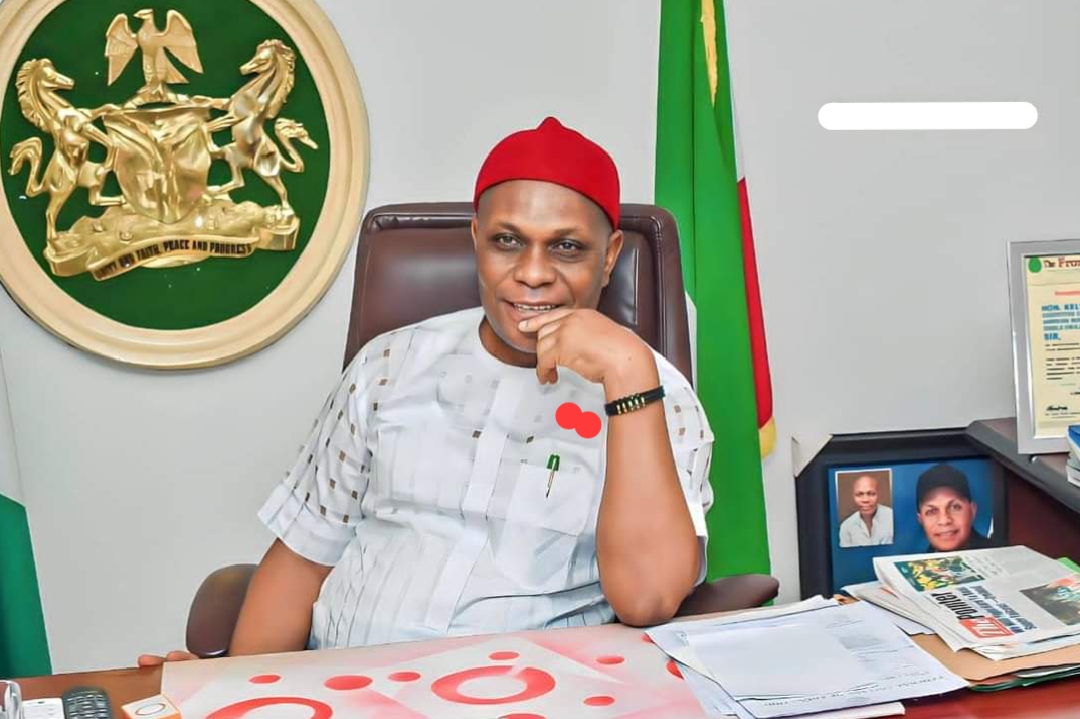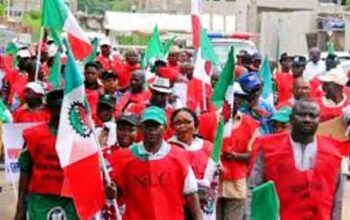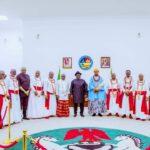Executive Chairman of Aniocha North Local Government, Delta State, Hon. Kevin Okwechime has advocated strong policy commitment to effectively drive the renewable energy master plan in Nigeria.
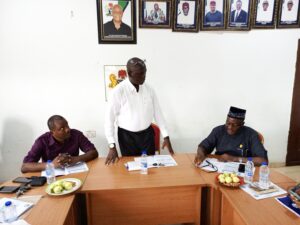
Hon. Okwechime made this position known on Thursday, September 28, 2023, while leading discussion in an interactive meeting between officials of the Local Government and a Senior Research delegation, from the National Institute for Policy and Strategic Studies (NIPSS), Kuru, who were in the area on a mission, to assess the implementation of renewable energy master plan (REMP), 2005-2025 in Nigeria.
The interactive session with the delegation led by Prof Ibrahim Chioji Mai, was held at the Executive Chamber of the Local Government in Issele-Uku.
The Executive Chairman, represented by the Secretary to the Local Government, SLG, Mr Kennedy Okoh, said the Local Government Secretariat is renewable energy compliant with the installation of solar energy stands within the premises, as well as in some critical departments such as the Primary Health Care Department.
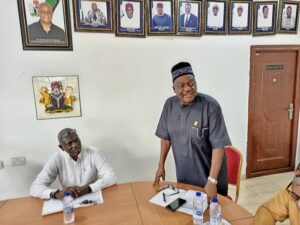
The Council boss, while noting the importance of renewable energy, especially since it provides cheaper, cleaner and alternative sources of power, however maintained that lack of policy commitment has been the bane of effective implementation of the 20 years renewable energy master plan in the country.
“What we need is strong policy commitment to drive the renewable energy master plan down to the grassroots in Nigeria.
“It has to start from the National Institute for Policy and Strategic Studies, where it will be driven through Federal Government institutions with the collaborative efforts of the States and Local Governments.
“If you need a policy to work, all you need is commitment and I am talking about strong political will and commitment from the Federal Government to make the energy master plan work effectively. And for it to work, there must be a system of decentralization.
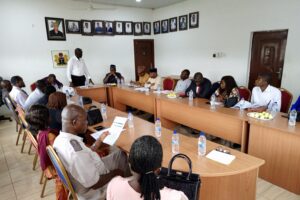
“You cannot be talking of renewable energy at the National and at the State, whereas it is needed the most in the Local Government Areas. To make the decentralization possible, there must also be strong political will and commitment,” the Chairman said.
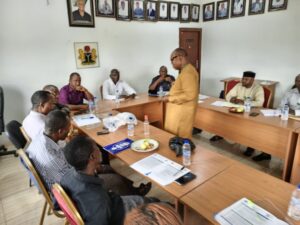
Hon Okwechime noted the collaborative efforts of the three tiers of Government in the area of primary health care and primary education, and said decentralization of the Federal Government policy on primary health care and that of primary education, backed up with strong policy commitment, made it possible for the effective implementation of the policies across States and Local Government Areas in Nigeria.
“In the same vein, for the renewable energy master plan to work effectively, let there be collaborative efforts between the Federal, State and Local Government, whereby renewable energy pilot schemes could be set up in the various Local Government Areas in relation to nearness to predominant renewable energy sources such as wind, water, solar, coal, as well as biomass, in a particular area,” he said.
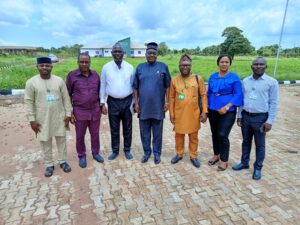
The interactive session, led by one of the Senior Research Fellows from the National Institute, and attended by top officials of the Local Government that included the Head of Personal Management of the Council, Mr. Bartrend Ojeh, and other departmental heads, articulated challenges and recommended measures for the effective implementation of the Federal Government renewable energy master plan as well as the Delta State policy on renewable energy.
The meeting noted high cost of renewable energy, lack of awareness, lack of political will, lack of strong policy commitment, lack of technical knowhow, lack of synergy between the various levels of Government, and insecurity as some of the challenging factors impeding the effective implementation of the renewable energy master plan in the country.
Some of the workable measures proffered for effective implementation of the master plan by the Local Government officials at the meeting includes; establishment of renewable energy pilot schemes, and comprehensive capacity building programme to train and empower the people.
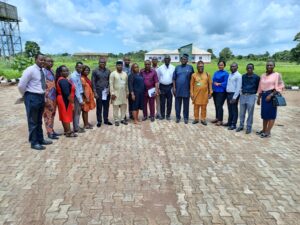
Advocacy and sensitization of the people on the need for renewable energy, Government subsidy on renewable energy, collaborative efforts between the various Government as well as strong political will and commitment on the part of Government to drive effectively the policy, were also recommended.
Earlier, the Leader of the delegation from the National Institute for Policy and Strategic Studies (NIPSS), Kuru, Professor Ibrahim Chioji Mai, said the delegation was on a fact finding national mission in the Local Government area to assess the level of the implementation of the renewable energy master plan (REMP), 2005-2025 in Nigeria, using Aniocha North Local Government area as a case study.
While confirming that the mission was to interact with the officials of the Local Government on the need for renewable energy in the country, considering the energy crises over the years, Prof Ibrahim who led three other Senor Research Fellows from the National Institute, said the interaction was to look at the challenges hindering the effective implementation of the master plan on Renewable Energy as well as articulate workable recommendations.
He said that the report on the mission would be transmitted to the Presidency for implementation, at the conclusion of the visitation.


